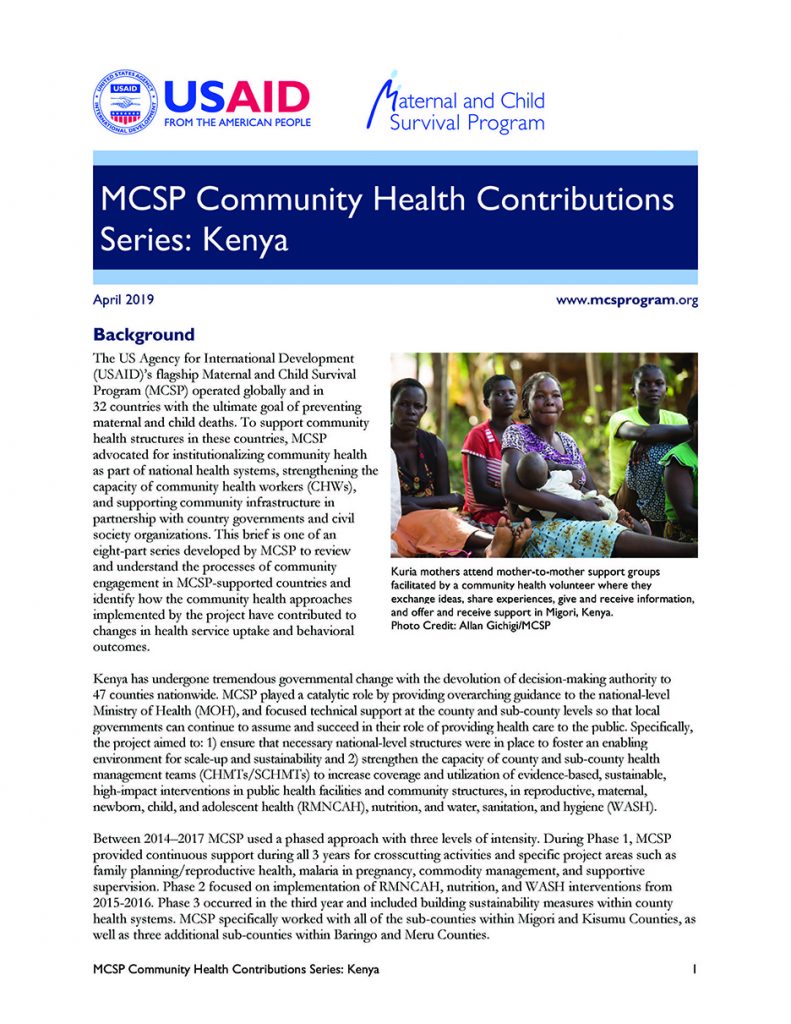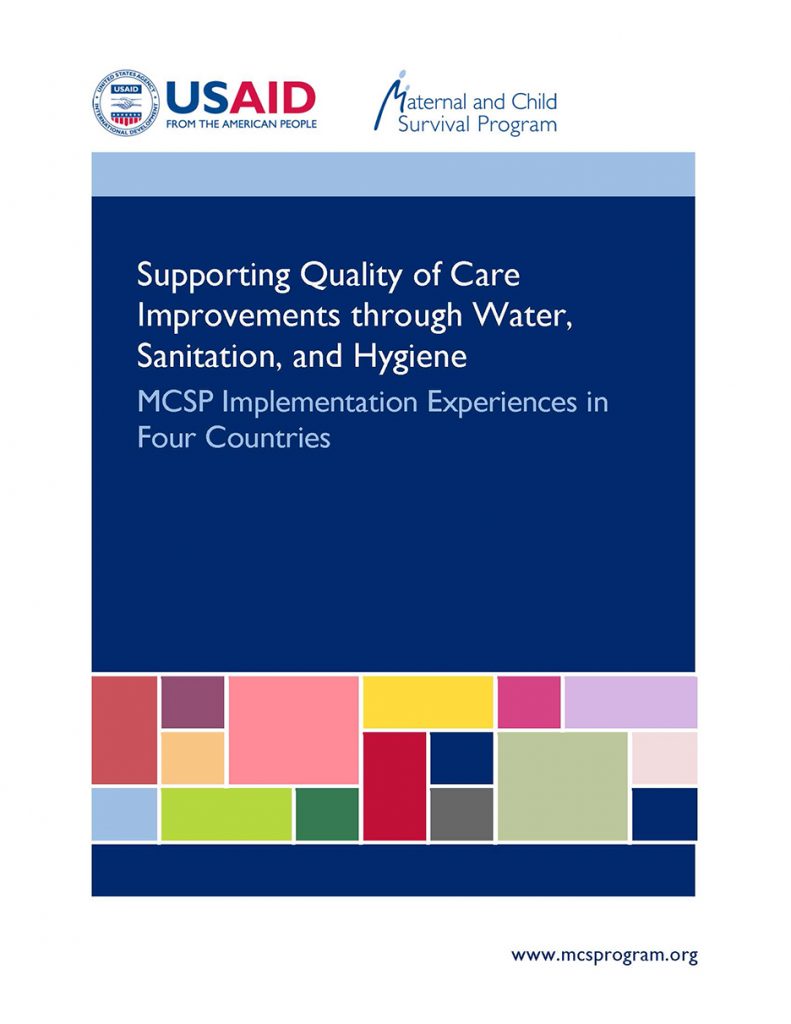
MCSP worked to improve health care facility WASH conditions and practices to contribute to quality of care (QoC) improvements and reductions of maternal and newborn infections through MCSP’s innovative Clean Clinic Approach. This report highlights experiences from four MCSP country programs (Haiti, Democratic Republic of the Congo, Guatemala, and Nigeria) that used WASH investments as […]
Read More…
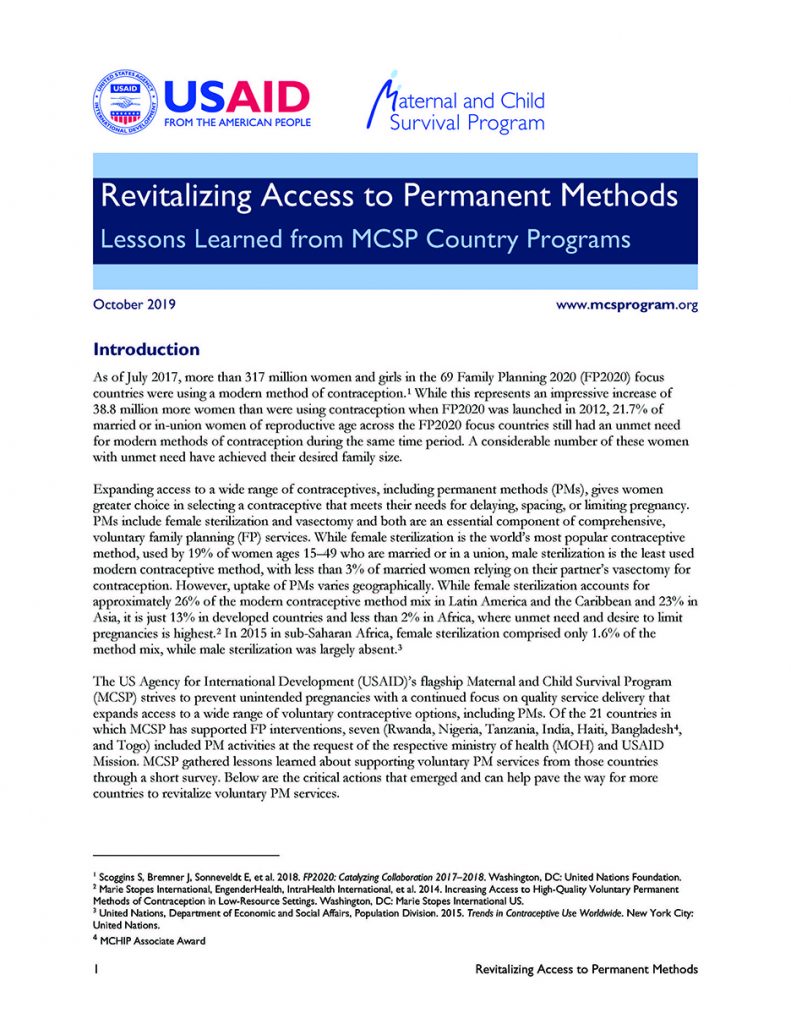
MCSP strives to prevent unintended pregnancies with a continued focus on quality service delivery that expands access to a wide range of voluntary contraceptive options, including permanent methods (PM). Of the 21 countries in which MCSP has supported FP interventions, seven (Rwanda, Nigeria, Tanzania, India, Haiti, Bangladesh, and Togo) included PM activities at the request […]
Read More…
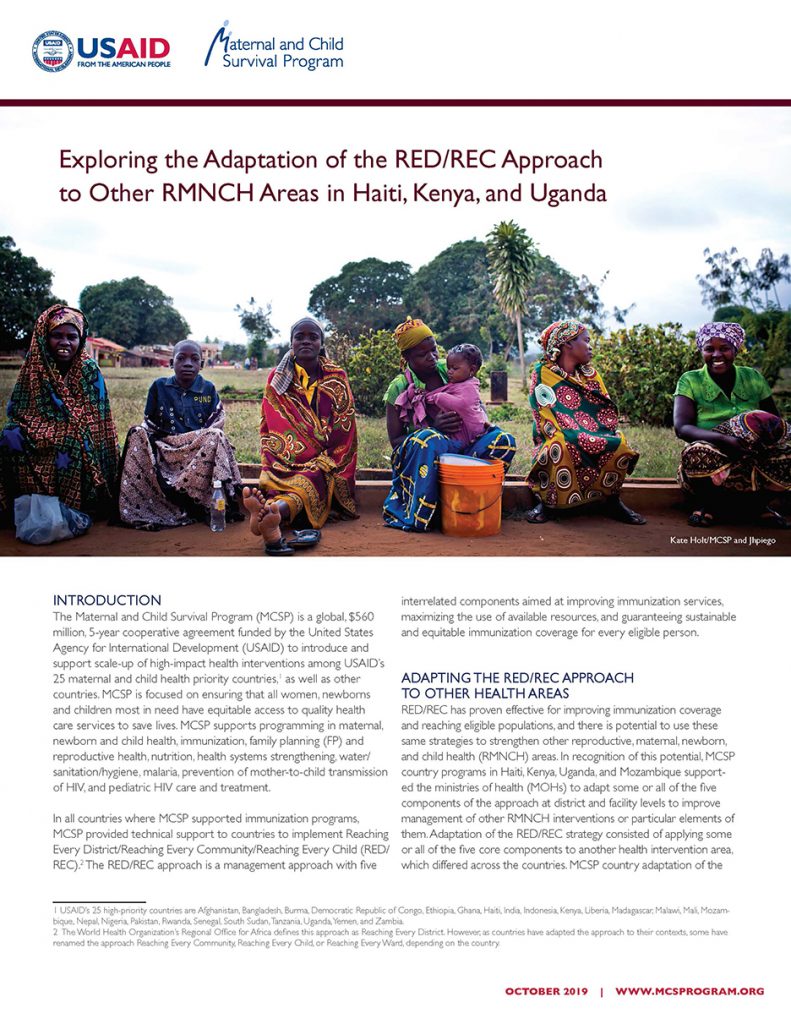
Reaching Every District/Reaching Every Community/Reaching Every Child (RED/REC) has proven effective for improving immunization coverage and reaching eligible populations, and there is potential to use these same strategies to strengthen other reproductive, maternal, newborn, and child health (RMNCH) areas. In recognition of this potential, MCSP country programs in Haiti, Kenya, Uganda, and Mozambique supported the […]
Read More…
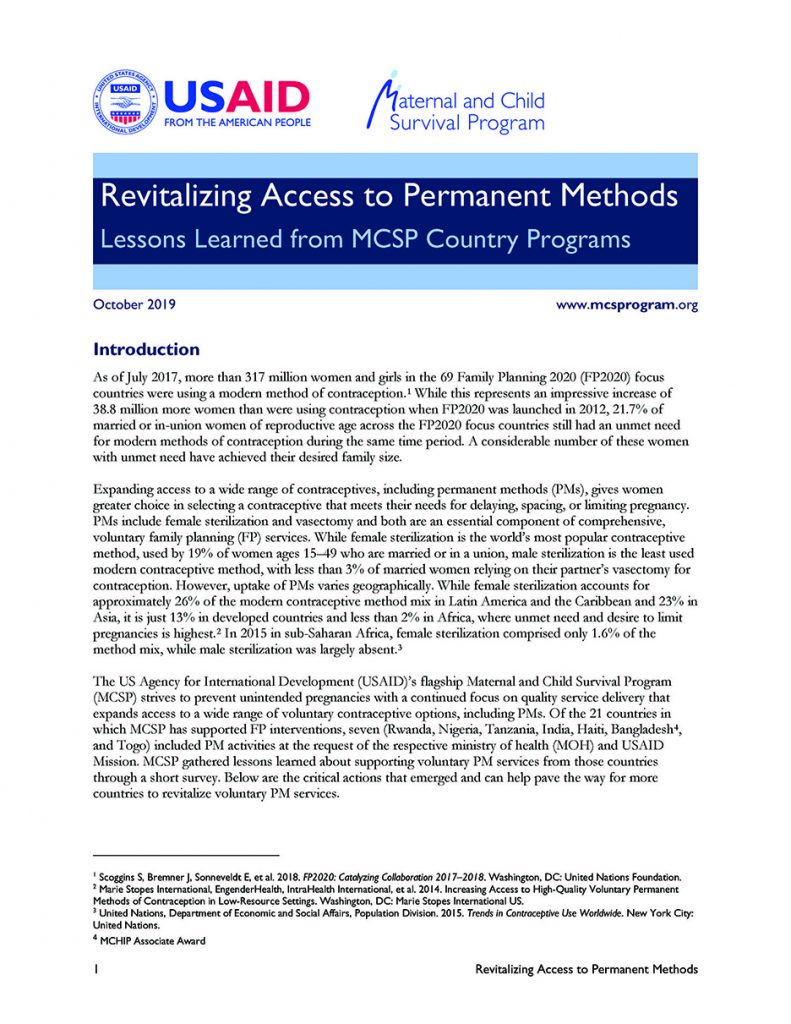
MCSP strives to prevent unintended pregnancies with a continued focus on quality service delivery that expands access to a wide range of voluntary contraceptive options, including permanent methods. Of the 21 countries in which MCSP has supported family planning interventions, seven (Rwanda, Nigeria, Tanzania, India, Haiti, Bangladesh, and Togo) included permanent method activities at the […]
Read More…
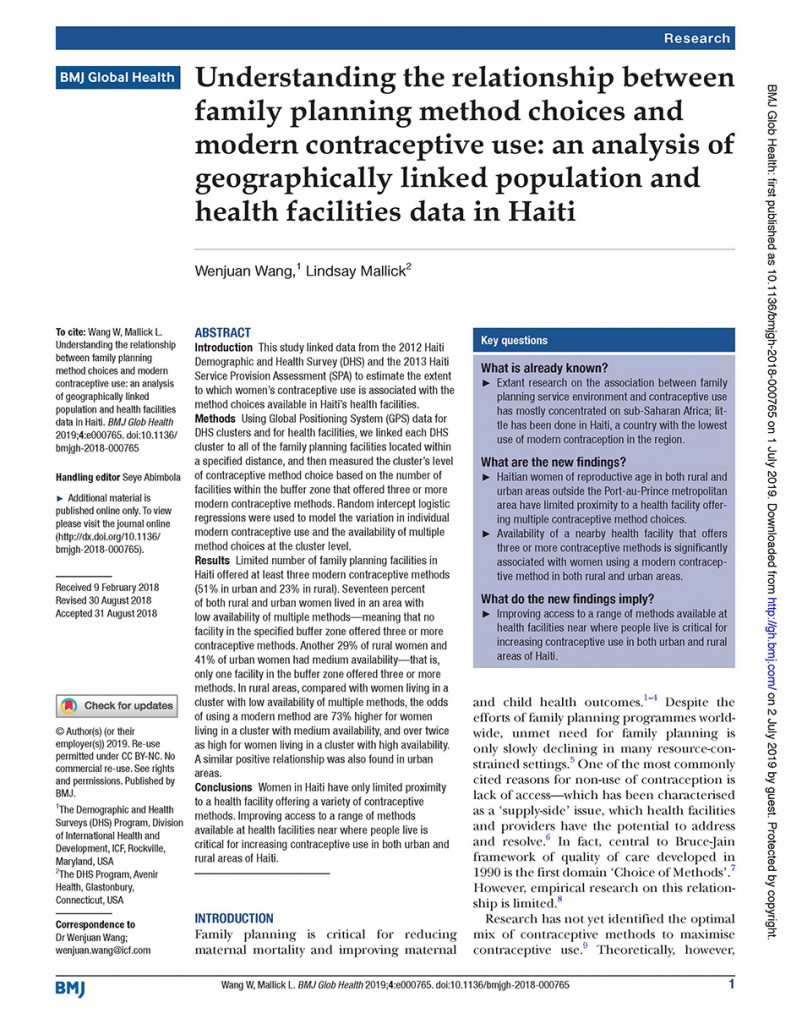
This study linked data from the 2012 Haiti Demographic and Health Survey and the 2013 Haiti Service Provision Assessment to estimate the extent to which women’s contraceptive use is associated with the method choices available in Haiti’s health facilities. […]
Read More…
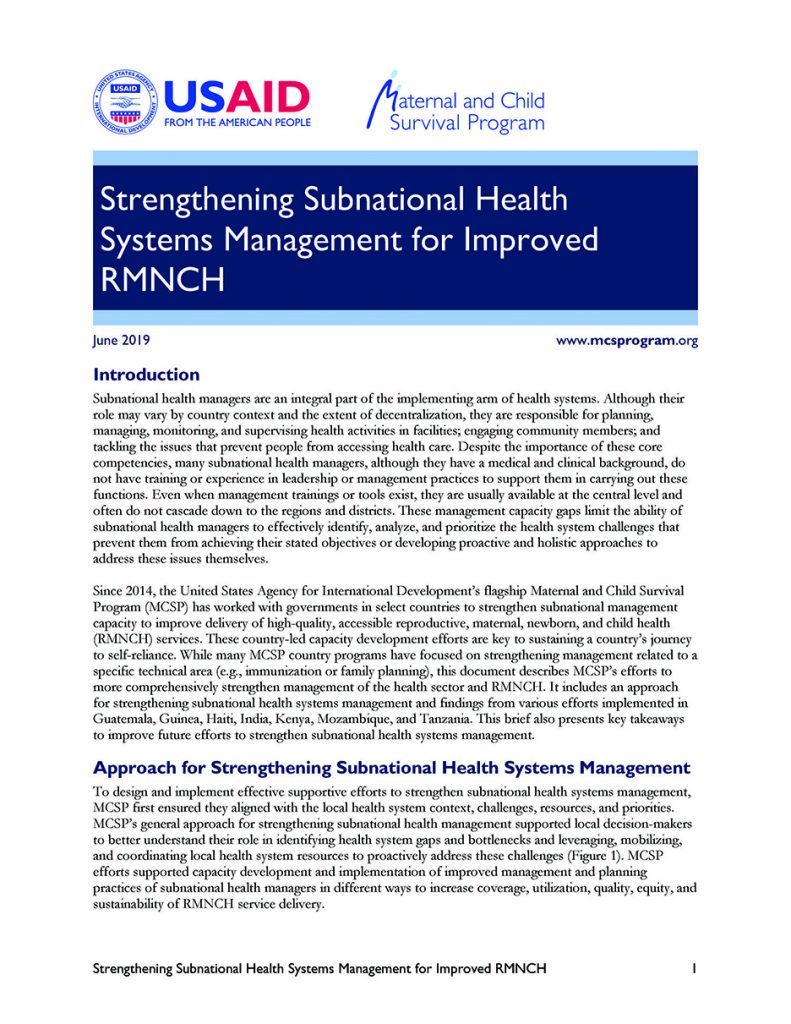
This brief describes MCSP’s efforts to more comprehensively strengthen management of the health sector and reproductive, maternal, newborn and child health (RMNCH). It includes an approach for strengthening subnational health systems management and findings from various efforts implemented in Guatemala, Guinea, Haiti, India, Kenya, Mozambique and Tanzania. It also presents key takeaways to improve future […]
Read More…
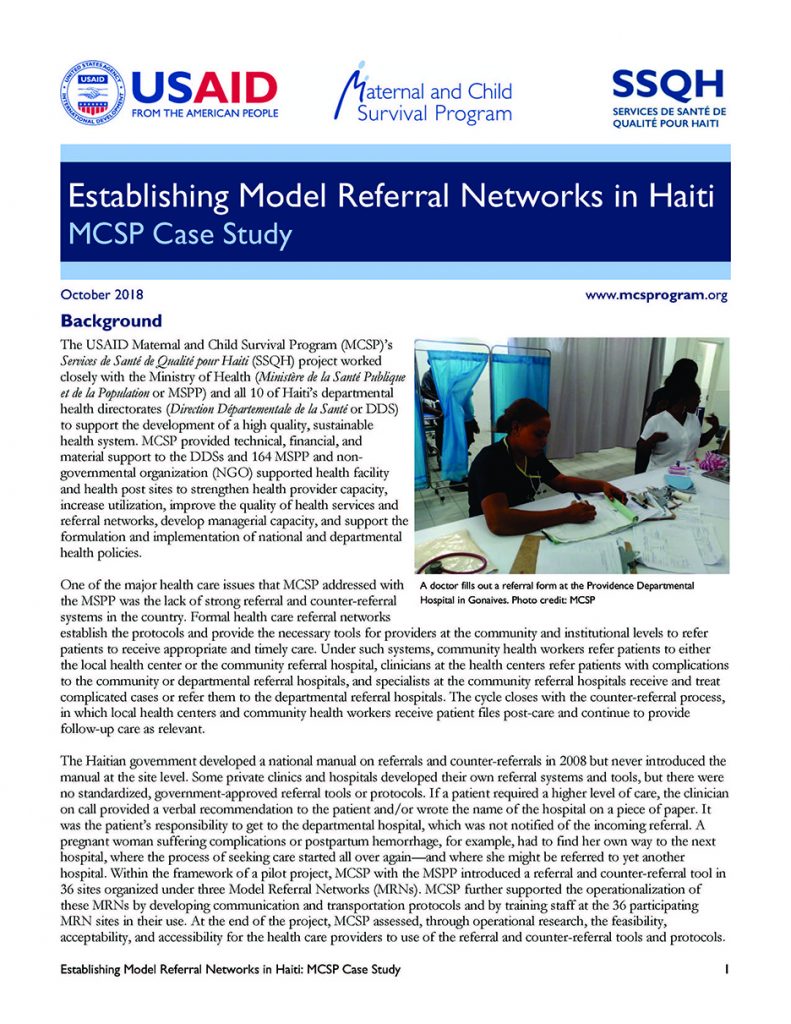
MCSP with the Ministry of Health introduced a referral and counter-referral tool in 36 sites organized under three Model Referral Networks (MRNs). MCSP further supported the operationalization of these MRNs by developing communication and transportation protocols and by training staff at the 36 participating MRN sites in their use. At the end of the project, […]
Read More…
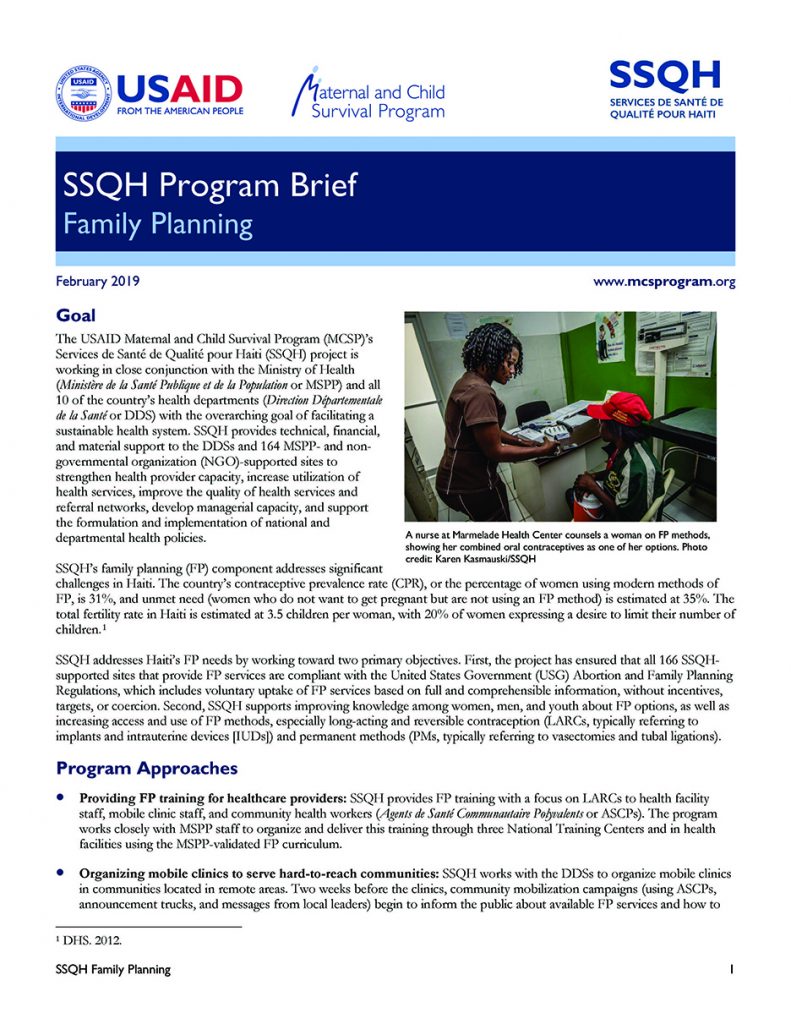
MCSP’s Services de Santé de Qualité pour Haiti (SSQH) project is working in close conjunction with the Ministry of Health (Ministère de la Santé Publique et de la Population or MSPP) and all 10 of the country’s health departments (Direction Départementale de la Santé or DDS) with the overarching goal of facilitating a sustainable health […]
Read More…
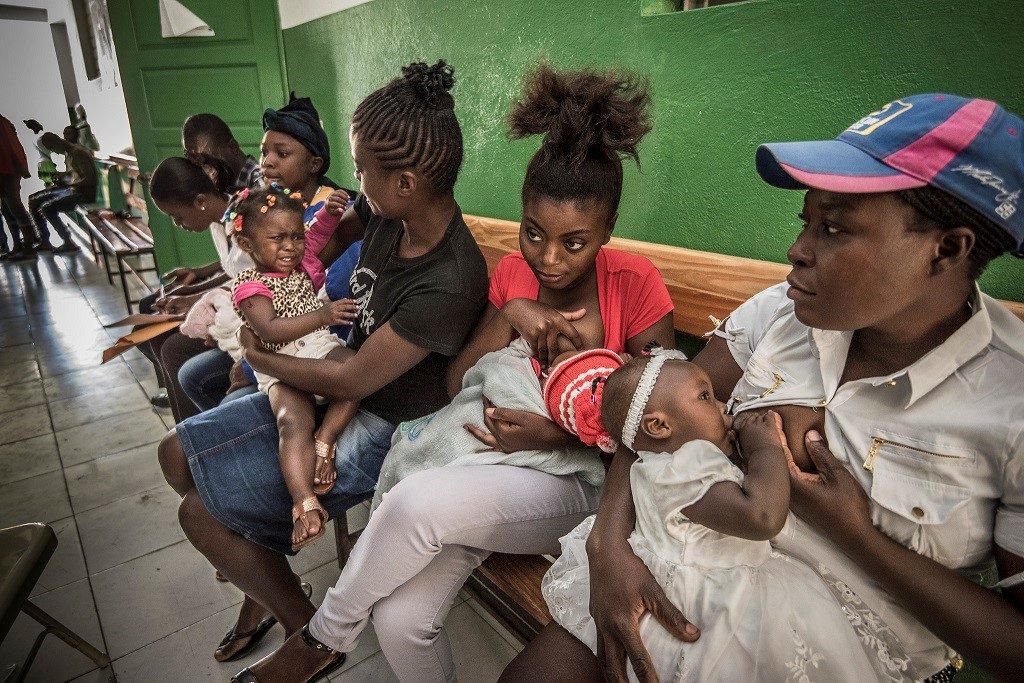
My journey into the world of data proved to be a bumpy – but ultimately satisfying – one. […]
Read More…




